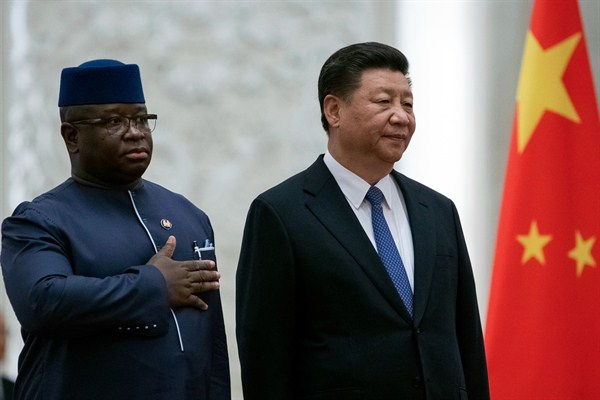In late October, a corruption inquiry into the activities of Sierra Leone’s former ruling party, the All People’s Congress, or APC, came closer to reality when a procedural vote in the APC-dominated parliament failed to block three proposed “constitutional instruments” establishing an investigative commission. The measures—all backed by new President Julius Maada Bio, who was elected after a closely contested two-round poll in March 2018—pave the way to investigate corruption by former President Ernest Bai Koroma and the APC, which had held power since 2007.
Despite the APC-led majority opposing the measures, the “no” vote on a procedural motion failed to clear the two-thirds majority that under Sierra Leone law is required to stop constitutional instruments from coming into effect. With those legal obstacles overcome, and with rumors that a Nigerian judge has already been chosen to lead the inquiry, investigations into alleged graft are set to dominate political debate in Sierra Leone as Bio approaches the end of his first year in office.
Tackling corruption was a key tenet of the election manifesto of Bio’s Sierra Leone People’s Party, or SLPP, and Bio’s administration took little time before launching its own investigation into the self-enriching activities of the outgoing APC regime. A report commissioned by Bio and published in June painted a picture of rampant corruption and malpractice from the very top of the Koroma administration. Bio described corruption as a threat “that can destroy this nation” and said he considered the level of corruption in the country “a national security issue.”

